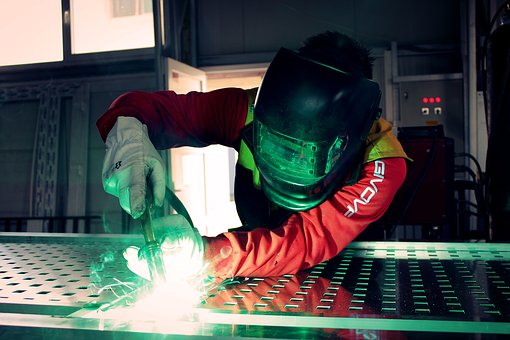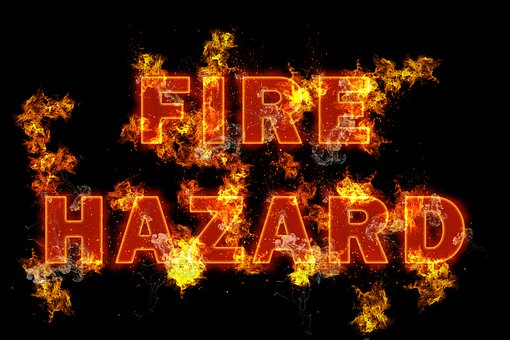37 out of 100,000 American workers in the steel industry die. There are about 500,000 reported injuries every year. In underwater welding, the fatality rate is 15 percent. These horrific statistics are proof that every welders needs to protect themselves. Whether you weld for fun or as a profession, you are susceptible to accidents. Here are a few tips that may keep you safe.

-
Wear the Right Gear
You may love your short-sleeved shirts and shorts, but they have no place in welding cells. Even when you are welding for fun, you need the appropriate clothing, helmets, and a pair of gloves.
Avoid your everyday wear and opt for flame-resistant options like welding jackets, denim pants, and shirts made with tightly woven material. Even though welding jackets may be hot and uncomfortable, you shouldn’t be afraid to wear them. Modern welding jackets are lightweight and comfortable. They are made with flame-resistant material.
Welding gloves have come a long way as well. From the old one-size-fits-all options, you can now access these gloves. They have curved fingers and the material is breathable. They offer just enough dexterity to promote easy welding, and they make it easy to avoid burns. Your gloves may also protect your skin from UV radiation rays. These rays may cause long-term issues like skin cancer.
Welding helmets are important as well. Exposure to welding arc rays, even for a moment, can harm your eyes. It can cause ‘arc flash,’ a painful eye condition that appears hours after exposure. Ensure that your welding helmets are fitted with filter shades for extra protection. Wear your safety glasses with ear protection and side shields under the helmet.
The lens shade you choose must be relevant to your welding application. A fixed shade lens may be appropriate if the materials and parameters of your weld do not vary.
-
Respirators for welders
These are devices that go over your mouth making it easy to breathe as you weld. Even though some welders don’t wear them, they are very important. They bring in clean air and get rid of harmful gases through the filters. There are lots of helmets with enough room for respirators.
-
Electrical Safety
Electrical welding uses high voltage to produce a powerful arc that can burn thousands of degrees in temperature. This makes it easy to melt metal. Since the volts are very high, they can kill you in seconds. Electrical safety is, therefore, an important part of modern welding. Modern welding machines come with safety features that are meant to protect you from electrocution. Even though they are more effective than the older models, risks still exist.
Many welders experience small shocks, especially when working in areas with some moisture. Even though these shocks are harmless, they often breed complacency leading to bigger problems.
If you need to make any adjustments to your welding machine, ensure that it is switched off. When electrically active components are involved, you can never be too careful.
Do not weld in the rain or in wet areas. Moisture can increase your electrical risk significantly. If you have to work around moisture, wearing the appropriate gear will keep you safer.
-
Fresh Air for welders
Electrical welding mostly uses nontoxic gases. They are unlikely to pose any danger when breathed in small amounts. If, however, these gases replace oxygen, they can be toxic. They can cause asphyxiation.
As you burn metal, it disperses more dangerous gases that can cause short or long-term illness. Some gases are dangerous enough to cause death. Even though protection is important, you must ensure that you are breathing fresh air.
If you can’t use a respirator, ensure that you use an extractor fan. It sucks welding fumes out of the surroundings. The fans are especially important when welding in confined spaces.
Gas detectors are appropriate as well. They measure the oxygen content in your space and notify you when they are dropping.
-
Address Fire Hazards

Fire and heat are common yet dangerous aspects of the welding process. The heat produced in the process may be enough to trigger the combustion of certain materials. Since metal is non-flammable, it doesn’t pose much of a risk. However, the surrounding materials can be problematic. Consider keeping a fire extinguisher close by in case of a fire break out. That way you can prevent its spread. A simple mistake can easily burn your entire workshop down.
Welding is great but it comes with lots of risks. Many welders suffer injuries or death every year. Fortunately, most of them can be prevented. If you run a welding shop, it would be wise to come up with a plan that addresses your safety. Important tips for both hobbyists and professional welders include wearing the appropriate gear, observing fire safety, and electrical safety.










